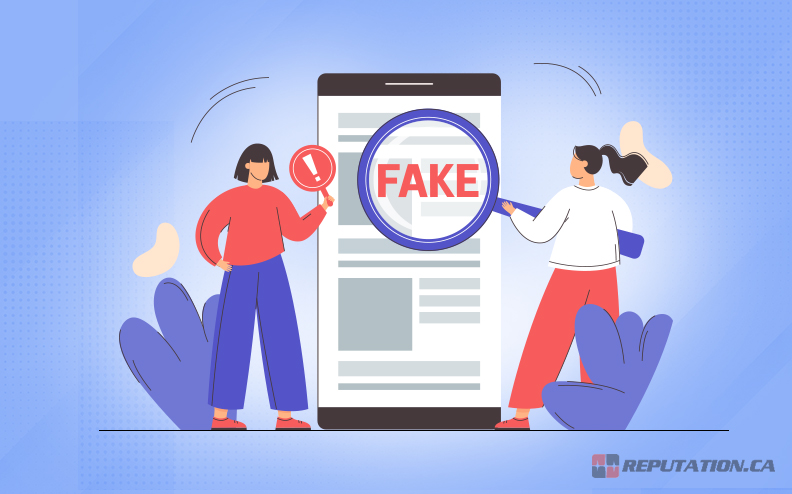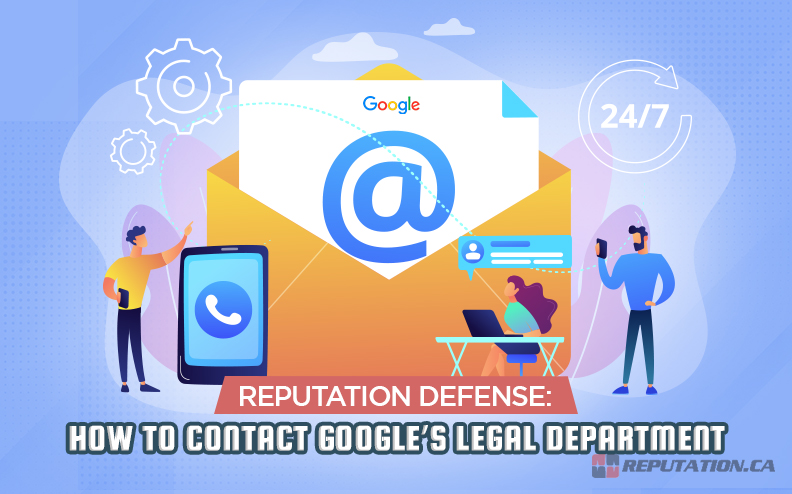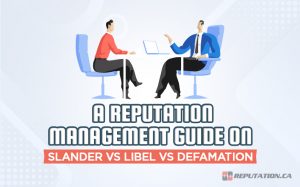Our reputation (personal or professional) is one of our most valuable resources. We cannot operate in a civilized society without our public image since most people will be reluctant to interact with us. A poor reputation can reduce our ability to conduct business with the general public and deprive us of job prospects. The current social climate has made people more likely to punish us for our mistakes, and companies trying to avoid controversy will not want to employ you. Furthermore, they will actively avoid individuals and companies with a history of victimizing those around them.
Our reputations are incredibly difficult to cultivate but easily shattered, making them one of the hardest to maintain. Our mistakes can come back to haunt us and shatter the public’s faith in us after years of tireless effort to build it to its current state. Ordinarily, having someone’s reputation falter when their past mistakes are exposed is not overly concerning.
Sometimes, people need to be exposed and punished for their past behavior since their past transgressions were severe enough that they cannot be forgiven. Unfortunately, our society has adopted a problematic mentality of “guilty until proven innocent,” meaning accusations of malfeasance are enough to permanently damage our reputations. Worse, if the accusations are prevalent enough, Google might host this misinformation as a prominent result on their pages. The question is: how can we defend against this?
What Role Does Google Play?
Google is one of the leading search engines in the world, dominating most people’s computers and mobile devices. Google’s search results are considered some of the best available and informative from one of the most user-friendly search engines. As a result, Google’s search results are the most common source of information on major topics and are used by millions worldwide. Almost everything noteworthy can be identified on Google, including individuals and corporations that can help the general public get more information.
Most people use Google as a tool for reaching their preferred information websites (i.e., Wikipedia) to research the subject that currently has their interest. However, Google combines traditional results with an advanced algorithm to direct users to other important information. One of the most common results of this algorithm is tying the search parameters to recent posts in news media.

This means the most recent information on a search subject will be thrust to the top of Google’s results page. This has generally been a highly beneficial feature for anyone using the search engine since it prevents us from scouring hundreds of results for information. The nature of Google and other search engines is to provide users with the information that will benefit them most. This includes relevant news articles that might alter how the public views that individual or organization.
While this is important when dealing with a disreputable company or individual, this practice has a major issue. It is possible for completely baseless articles to reach the top of Google’s results. In some cases, Google can endorse these articles and perpetuate the rumor to the point that people believe the article despite the facts.
What is False Information?
False information is a major issue in modern media since many outlets like to sensationalize new developments that generate an audience. This means minor controversies are immediately published in stories on independent media outlets. This can spread the story faster than normal and allows it to reach audiences nationwide. As a result, more people accept the reports as fact since the story is spreading, and there might not be an official response by the time they read it.
Unfortunately, many articles use rumors and hearsay to make their stories stand out when no corroborating information has been released. This has the unfortunate side effect of causing their readers to accept it as fact because we, as a society, tend to want these rumors to be true for the sake of excitement. The biggest issue is that some outlets publish information they know is inaccurate but will generate revenue and traffic.
False information has serious consequences for our reputation and is also a huge violation of our rights. The mere accusation of malfeasance or improper conduct is enough to permanently damage our public image since the stigma is attached to our names. When the information published is deliberately misleading or false, the situation worsens because there is an active attempt to defame you or your business.

When an article or news segment is released that actively promotes rumors or misinformation as fact and that information can damage your reputation, it falls under a specific category of defamatory speech, depending on the medium. These categories include:
- Libel: Any false statement or story that is published in written form. For example, an online or newspaper article that actively defames you is considered libel and applies to websites, magazines, newspapers, and any other print or digital print medium.
- Slander: Slander is similar to libel in that the statements are false and designed to damage the subject’s reputation. The difference is that slander is a spoken statement rather than a published one. Ergo, any anchor or public figure that makes these claims to an audience via public appearance or video can be accused of slander.
Libel and slander are both serious civil offenses, especially when the comments and information being spread are deliberately designed to damage your reputation. Despite how easy it is to make a false public statement or article, most countries have illegalized it. Slander and libel are considered civil crimes, and the subjects of defamation are given resources to launch a claim against the person or group spreading lies about them. These claims are generally successful when the information in the articles or statements is proven false.
The problem is that large organizations like Google can be difficult to contact, and they can often remove false information to avoid lawsuits. You might have to contact their legal department to make an official claim if they are unwilling. Unfortunately, contacting Google’s legal department can be a major challenge since it is a company protected by a large legal team.
How to Contact Google’s Legal Department
Even if you have the necessary contact information, Google’s legal department can be difficult to reach. Companies like Google expand rapidly and take advantage of legal precedents to protect themselves from reprisal for minor infractions. Furthermore, they employ a large group of business attorneys to ensure all their bases are covered. Typically, a company’s legal department is contacted by your attorney since they are better equipped to handle the particulars of legal discourse.
However, you might have a harder time if you intend to contact the department personally. You first need to know that Google has 2 e-mail addresses for legal matters. One is specifically for criminal issues, while the other is for civil matters, meaning you cannot send a request to one if it is meant for the other. These e-mail addresses are as follows:
- Criminal Legal Department: uslawenforcement@google.com
- Civil Legal Department: internationalcivil@google.com
These e-mail addresses are used to serve legal documents to Google to have them address criminal or civil issues with their hosted content. Google cannot actively take down the content hosted on an independent website’s domain, but they can remove that domain (and, by extension, the content) from their website’s results.

When dealing with a defamation issue, you must send the associated documents to the civil legal department’s e-mail address. It can also be used to attach a courtesy copy of the essential documents so Google’s legal team cannot claim your lawsuit blindsided them. Furthermore, it is possible to contact Google’s legal department via phone, but there are multiple numbers. Google’s legal department’s most reliable phone number is (844) 383-8524. As of 2019, the other number is (650) 417-9011. Finally, Google’s legal department has 2 fax numbers that can be used to forward essential documents in compliance with state law. These numbers are (650) 253-0001 and (650) 249-3429.
Once you have contacted Google’s legal department and forwarded the necessary documents, you can either proceed with your lawsuit or attempt to negotiate out-of-court to have defamatory content removed. It is important to note that Google will not remove valid content just because it paints you or your business in a bad light. If the content is genuinely false and defames you, they will be more inclined to remove it to avoid a lawsuit.
Unfortunately, having Google remove the content from their domain is insufficient to repair the damage your reputation might have taken. You must address that issue by taking steps to reinvent your image in the wake of defamatory content.
How to Repair Your Reputation After Defamation
Defamatory content might seem like a minor issue for most people, but the problem is that modern society thrives on drama. We are predisposed to believe in the worst of people and companies because it justifies pre-existing notions and gives us someone or something to speak out against.
While there are plenty of valid concerns about certain people or companies that have done questionable things, this need for an enemy has conditioned us to treat everyone as guilty before any proof is provided. When an article or news segment talks about how a company has been cutting corners to save money, most people leap at the chance to support those claims.
Furthermore, even when the article is retracted because it was false, many people believe there was an underhanded deal designed to take the pressure off that company or individual. People are willing to associate us with crimes we never committed just because we were accused. While this goes against the core tenets of modern judicial systems, the sensationalism behind these accusations carries a lot of weight.
Fortunately, it is possible to rebuild your reputation after a defamatory article or interview damages it. While there is no quick fix for these issues, you can undo most of the damage if you take the time and effort. First, you must make a statement as soon as the defamatory article is posted. The longer you wait to comment, the more people will see and believe it. Making a counterstatement as soon as possible adds a second opinion that readers must consider. Unfortunately, there is still more you must do if your reputation will recover from the damage.

When we are accused of something we did not do, the easiest way to repair the damage is to provide irrefutable evidence that we did not. Unfortunately, revealing details can compromise your business model if you are a business. Fortunately, it is possible to provide hard evidence that what the other person said is untrue since they must provide evidence.
Drawing attention to the flaws in their logic can cause your consumers to question the validity of the entire article. Furthermore, engaging in social media discourse and maintaining complete transparency about whatever you can is essential to regaining their trust. Rather than being evasive with answers, be as straightforward as possible without compromising your business.
Ultimately, the best way to rebuild your reputation after a brush with defamation is to have a team dedicated to managing your public image. Fortunately, that resource is readily available for any company or individual.
Take Your Reputation Back!
Dealing with defamatory content on a website as large as Google can be a public relations nightmare, especially for smaller organizations. We at Reputation realize that your public image is critical to your success and ability to integrate into modern society. That is why we have dedicated ourselves to providing reputation management services for companies and individuals in Canada and the United States.

We offer several services, such as social media management, to help bolster your reputation in the face of adversity. We can even launch campaigns specifically designed to combat libel or slander on your behalf. There are no shortcuts concerning your public image, so we urge you to visit our website and take your reputation back! Additionally, if you have any questions or concerns, please feel free to contact us at any time. We’d be more than happy to assist you.











